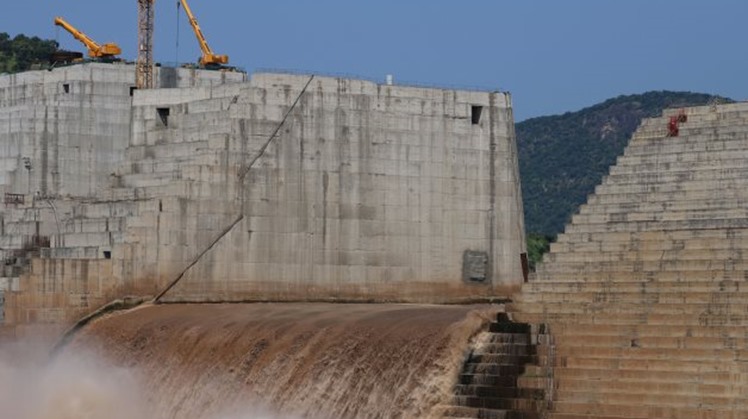CAIRO – 17 January 2021: Egyptian ambassador to the US Moataz Zahran said that there is a need for cooperation again between Egypt and the United States on the issue of the controversial Grand Ethiopian Renaissance Dam (GERD), Egypt’s state-owned news agency on Friday.
“There is a need for cooperation again with the new administration issues […] to play a constructive role in order to resolve this dispute," he said during his participation in a virtual dialogue with the National Council on the US-Arab Relations.
He added that the tripartite negotiations between Egypt, Sudan, and Ethiopia regarding the points of disagreements, despite the US, AU, WB, brokerages, did not result in resolving the issue.
Washington had brokered a tripartite discussion between the three countries, in presence of the President of the World Bank (WB) starting from November 6, 2019 until February 27 and 28, 2020 when Ethiopia apologized for being absent from the negotiations. During these rounds of talks, tangible outcomes were agreed on among the three parties concerning the rules and mechanism of operating the dam and the filling process of the reservoir during the drought and prolonged drought; however, the Ethiopian and Sudanese refused to sign the US/WB-drafted deal.
Later the African Union (AU) has brokered the endless tripartite talks, which always reached stalemates.
Egypt is diplomatically pressing to find solutions to the outstanding issues regarding the dam’s operation and reservoir filling, particularly ahead of the second round of the filling process due in August 2021.
In mid-July 2020, Ethiopian authorities unilaterally carried out the first phase of the filling process with 4.9 billion cubic meters; and it is expected – as reported by the BBC- that the second phase of the filling would reach 13 billion cubic meters.
In previous remarks to Egypt Today, former Minister of Water Resources and Irrigation Houssam Moughazi said, “It is hopeful that the three countries.
The difference between Egypt, Sudan, and Ethiopia dates back to May 2011 when Ethiopia started building the dam; Egypt voiced concern over its water share [55.5 billion cubic meters]. Three years later, a series of tripartite talks between the two countries along with Sudan began while Ethiopia continued the dam construction. In 2015, the three countries signed the Declaration of Principles, per which the downstream countries should not be negatively affected by the construction of the dam. Since then, the negotiations have been ongoing without reaching a final and comprehensive agreement.
 Sun, Jan. 17, 2021
Sun, Jan. 17, 2021